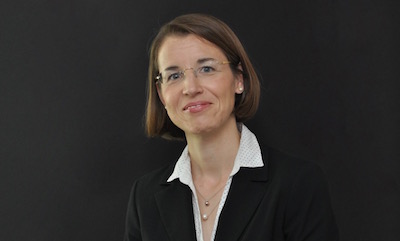In Essential Medicines Access, Progress and Challenges Around the World.
 In 1985, in Nairobi, Kenya, the World Health Organization brought together governments, pharmaceutical industries, and patient and consumer organizations. The topic was essential medicines—their availability, affordability, quality, and use.
In 1985, in Nairobi, Kenya, the World Health Organization brought together governments, pharmaceutical industries, and patient and consumer organizations. The topic was essential medicines—their availability, affordability, quality, and use.
The progress and challenges of the 30 years since are detailed in the Lancet Commission on Essential Medicines report co-authored by Associate Professor of Global Health Veronika Wirtz and released on November 8.
Challenges are not limited to low-income countries, Wirtz says. The Lancet tapped Wirtz two years ago to co-chair the commission with Hans Hogerzeil of the University of Groningen in the Netherlands, and Andy Gray of the University of KwaZulu-Natal, South Africa.
The report covers five key areas: financing; affordability; quality and safety of medicine products; improving the use of medicines; and developing new essential medicines. (The World Health Organization defines essential medicines as “those that satisfy the priority healthcare needs of the population,” Wirtz says.)
“The high price of medicines is one of several challenges affecting high income countries, and one that stands out,” she says. “Medicines mostly for specialty care, cancer medicines in particular, and in areas of infectious disease—hepatitis C is the example that comes up in the news nearly every day— are unaffordable even for high-income countries.”
One of the countries raising the most concern in that area, Wirtz says, is the US.
The report highlights some high-income countries—in the European Union, as well as Australia and New Zealand—that have formalized systems for assessing the value of new healthcare technologies and negotiating prices with manufacturers.
“Many people, including Barack Obama, have made the point that the US government, via Medicare, should be allowed to negotiate price” in a similar way, Wirtz says, yet the problem is allowed to persist, “and likely worsen if no action is taken.”
Where the report looks at how medicines are paid for, she says, the US receives another poor grade. “We have huge inequities, with estimations that part of the population is really struggling even with commonly used medicines such as insulin,” she says.
The US “is a country that stands out with really imminent, immediate challenges,” Wirtz says.
On the other hand, Wirtz says the report also includes tremendous progress around the world—including the host of that 1985 meeting: “In Kenya, procurement agencies and distributors have very successfully instituted supply chain quality control.”
“In the report we demonstrate in Kenya that one of the distributors has been able to implement quality control quite effectively. They are able to say, ‘These medicines we accept and these medicines we distribute, and we will not procure any more from suppliers offering substandard medicines.’”
Wirtz says she and her fellow commissioners ran into another challenge themselves, one that perfectly illustrates a wider issue. “To demonstrate progress you would need good data to begin with,” she says, but “the pharmaceutical sector in general has struggled with transparency.
“The report strongly argues that we need to have a different attitude to sharing data,” she says. “Some of the final words of the report are that this is a public good—information and data become a public good. I think that is potentially part of a cultural shift, a tremendous shift in thinking.”
Still, she says, that shift will need to extend beyond the pharmaceutical industry. After all, improving essential medicines around the world is a collaborative effort.
“Some people immediately think the pharmaceutical industry is the culprit,” she says, but “there are many more actors whose role is also critical when it comes to promoting equitable access, such as governments, insurers, and providers.
“All actors need to be held accountable.”
Read the Lancet Commission on Essential Medicines report.